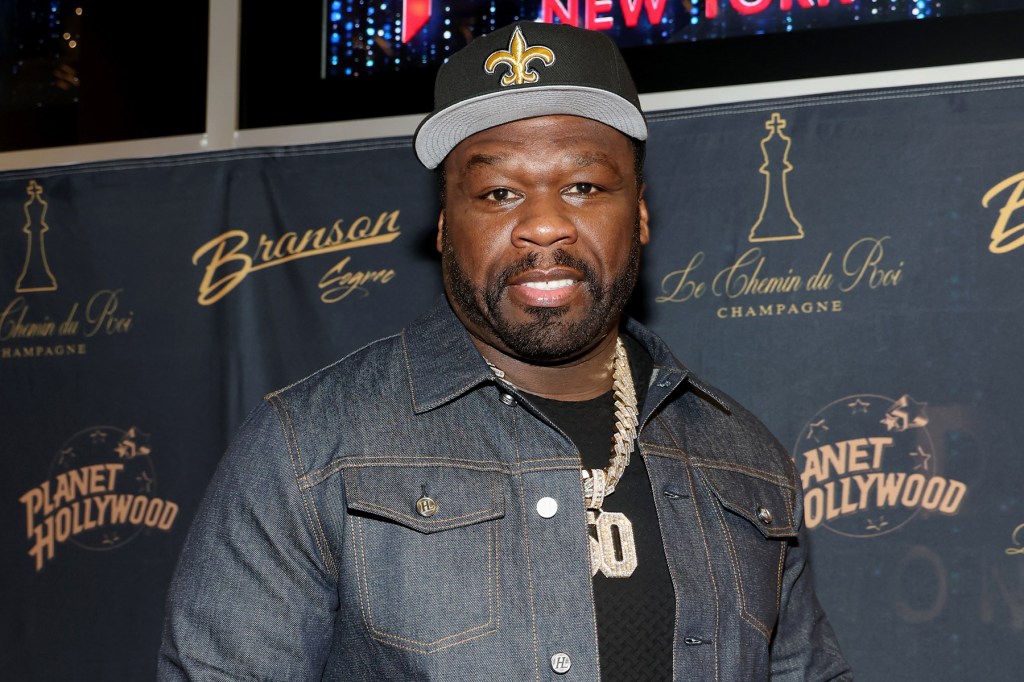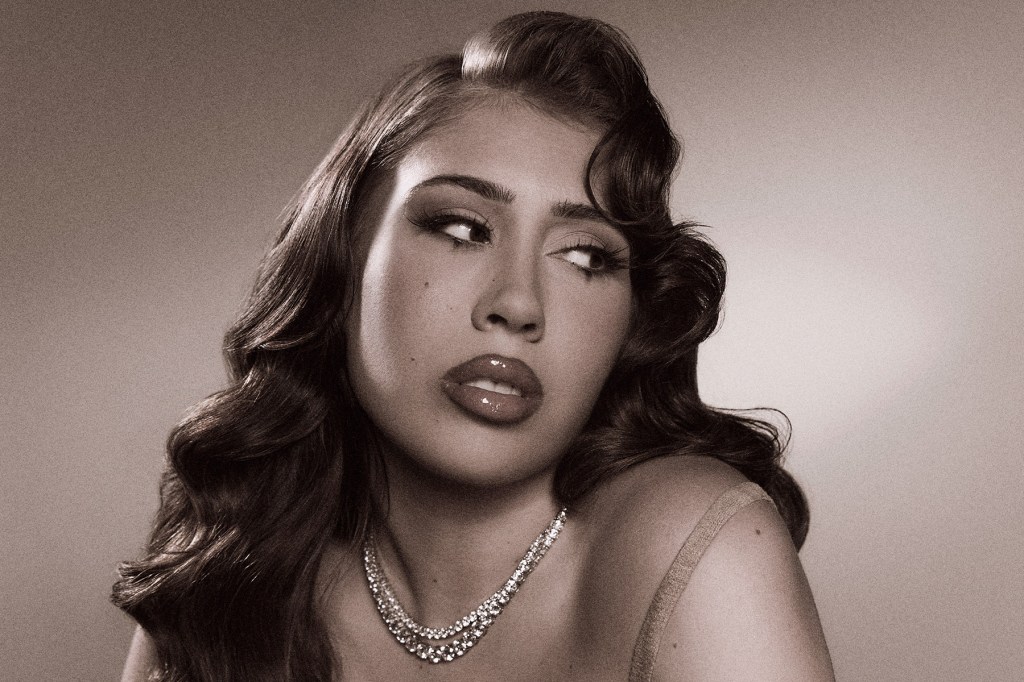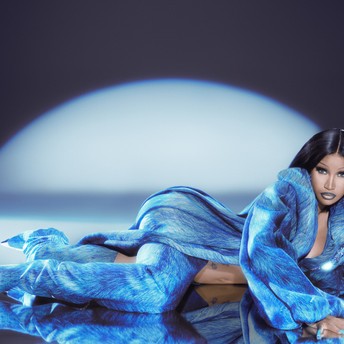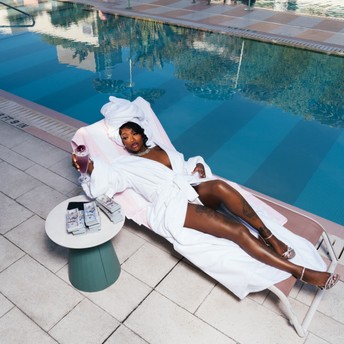R&B/Hip-Hop
Page: 6
Trending on Billboard 50 Cent’s film empire continues to expand. The G-Unit boss is on board as a producer for the upcoming crime drama Moses the Black, which will star rappers Wiz Khalifa and Quavo. The gangland flick is slated to come to U.S. theaters on Jan. 30, 2026. Omar Epps, Chukwudi Iwuji, Detroit rapper Skilla […]
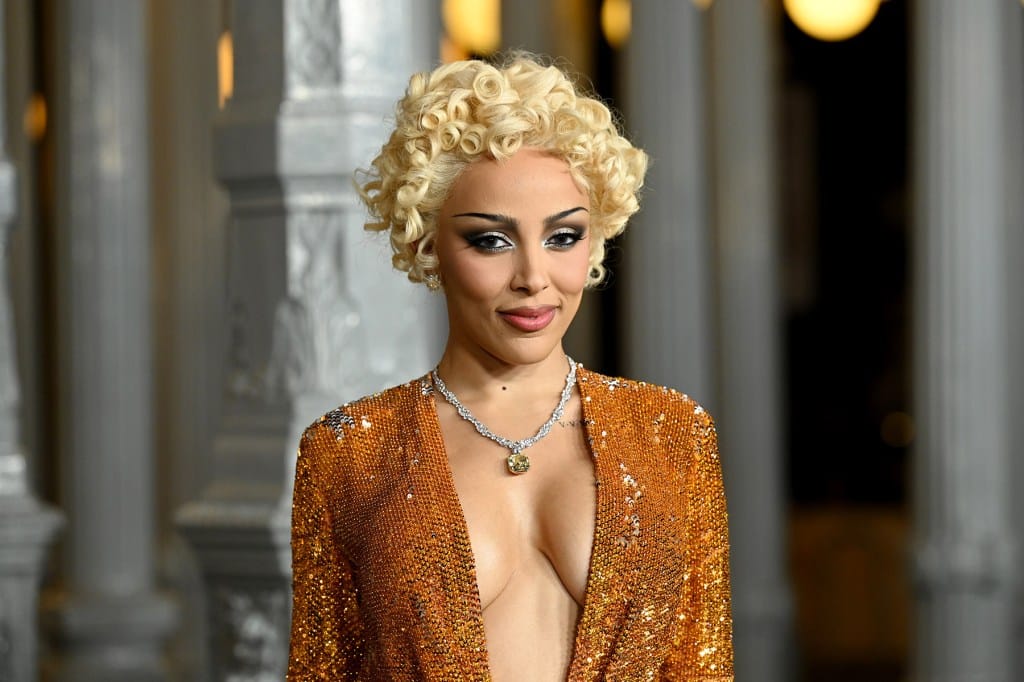
Trending on Billboard Doja Cat kicked off her Tour Ma Vie World Tour in New Zealand on Tuesday, and she’s responding to a few early critics of the global trek. It appears some fans weren’t thrilled with clips from Doja’s tour opener, as they took issue with the wardrobe changes, set design, visuals and storytelling […]
Trending on Billboard Kali Uchis and Blood Orange are among the artists added to Tyler, the Creator’s 2025 Camp Flog Gnaw, following the festival’s postponement to this weekend (Nov. 22-23) due to inclement weather. Geese and emerging rapper Fakemink were also added to the bill after Clairo, Don Toliver, Men I Trust, Sombr, Tems and […]

Trending on Billboard Halsey has dropped a few bars to Kendrick Lamar‘s “Swimming Pools (Drank),” and it’s going viral. On Wednesday (Nov. 19), Halsey took some time out of her Back to Badlands Tour to playfully spit a few bars set to K-Dot’s 2012 hit. Halsey pleaded with Kendrick to keep an open mind before […]
Trending on Billboard Cardi B has shared the first photo of her baby boy she shares with Stefon Diggs. Cardi posted the carousel of photos on Wednesday (Nov. 19), which shows the rapper cuddling her baby in a nursery, as well as in the hospital bed right after his birth. The caption notes the date […]
Trending on Billboard
Summer Walker surprised fans on Wednesday (Nov. 19) with the release of two Finally Over It deluxe editions, featuring some brand new songs and others that never found their way onto streaming services before.
Explore
See latest videos, charts and news
The Finally Over It (Cocktail Hour) edition arrives as an iTunes download exclusive, with the fan-favorite Sessions series receiving another installment with “Sessions 34” and a live performance of “Session 32” from the Breezy Bowl Las Vegas stop. Summer also takes fans inside the creative process for “Go Girl,” which features Latto and Doja Cat.
As for Finally Over It (The After Party), this edition is live on streaming services with tracks such as “Take Me Out This Club” and “Drown in My Love,” which were previously exclusive to vinyl. There’s also a solo version of “1-800-Heartbreak” appearing on disc three.
“Take Me Out This Club, Drown In My Love and 1-800 Heartbreak (Solo) are live on ALL STREAMING PLATFORMS. Finally Over It (The AfterParty) deluxe. I heard you,” the R&B singer wrote to IG.
Finally Over It serves as the finale of Summer Walker’s decorated trilogy. The third installment arrived on Friday (Nov. 14) with a star-studded features list that includes Latto, Doja Cat, Mariah the Scientist, Chris Brown, Anderson .Paak, Bryson Tiller, SAILORR, Brent Faiyaz, 21 Savage, GloRilla, Sexyy Red, Teddy Swims and Monaleo.
Earlier this week, Summer joined The Terrell Show where she explained her Anna Nicole Smith-inspired cover art, which features Walker in a white wedding gown. It’s a callback to Smith’s 1994 wedding, where she married J. Howard Marshall, a then-89-year-old billionaire.
“I love her. She’s hot. She’s sexy. She’s fun and free,” Walker gushed. “And I want that to be me … People come up with s—t for creative direction, but I really want to get into that. I got to find my old billionaire!”
Stream Finally Over It (The Afterparty) below.
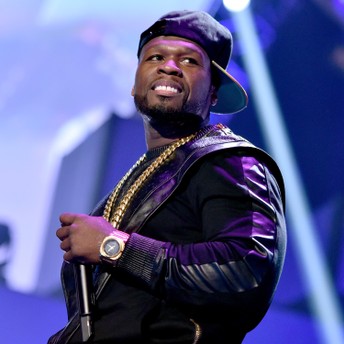
Trending on Billboard
Vivica A. Fox joined Sherri on Tuesday (Nov. 18), where she opened about how she can’t forget about 50 Cent, her ex of 20-plus years.
Fox went viral earlier in November for her comments from a Women’s Expo advising others not to date 50 Centand rappers altogether, but she is now clarifying her stance.
“I didn’t say you couldn’t play with them,” she told host Sherri Shepherd. “You acted like I was on the picket line. Every time somebody ask me something, ‘Don’t date 50 Cent.’ That was not it. What happened is I said, ‘Vivica, if you could tell your 17-year-old self anything.’ That was me, like, I wish I knew not to go public so fast, not to have it out there, not to have the breakup that’s lasted 22 years.”
Explore
See latest videos, charts and news
Fox enjoyed that 50 had fun with his comedic response to her comments, which saw him post an AI-generated photo of himself as The Matrix‘s Morpheus holding out a red and blue pill.
“Either way I’m a have that a– in the matrix,” he wrote in a since-deleted post captured by Complex. “You know I love me some you, girl. But damn it’s been 22 years Vivica.”
Fox and 50 Cent dated in 2003 and broke up in the same year. They’ve been on-and-off publicly feuding in the decades since.
However, they’re on cordial terms these days, and Fox says she’ll always hold a “special place” for 50 and pointed to their excellent sex life. “You know you got that one that you always got that one that you always got a little special place for, but we are in a good place, and I’ll take the blue pill. Oh my goodness,” she revealed. “Remember the time!”
50 got wind of Fox’s comments on Tuesday and responded with an IG post resharing the Sherri clip. “What the fvck is going on here Shaniqua & Jane doe don’t act like that, and I had to pay them h–’s. LOL,” he wrote.
Watch the clip of Vivica A. Fox on Sherri below.

Trending on Billboard
Jill Scott, John Legend and Earth, Wind & Fire are among the stars who will be performing at the inaugural HBCU AWAREFEST. Billed as “the largest HBCU fundraiser ever,” the festival — a new joint partnership between Live Nation Urban and Student Freedom Initiative — will be staged at Atlanta’s State Farm Arena on March 26.
Explore
See latest videos, charts and news
In addition to the aforementioned acts, the lineup includes Common, GloRilla, Tems, Metro Boomin, Kirk Franklin and others. Chris Paul, Angel Reese, Atlanta Mayor Andre Dickens and entrepreneur-philanthropist Robert F. Smith are among the guest speakers who will be participating.
“At Student Freedom Initiative, we are incredibly excited about the coalition and movement that we are building to end the student loan debt crisis for our nation’s HBCU students,” said Keith Shoates, president and CEO of SFI, in a statement. “In addition to these amazing performers, we have enlisted AWAREFEST Ambassadors, showing the breadth of our ecosystem of mission-aligned partners. These individuals will help to spread the word and share the urgency of our mission to tackle the racial wealth gap through the lens of education.”
Shawn Gee, president of Live Nation Urban, commented, “Live Nation Urban is committed to Black excellence in music and culture, and today we are proud to stand with our partners at Student Freedom Initiative to build a national movement of allies, artists, activists and students to support the institutions that are the foundation of our culture.”
Serving as a nationwide call to action, HBCU AWAREFEST will also present workshops and panel discussions about the serious issue of student loan debt. Funds raised by Live Nation Urban and Student Freedom Initiative will benefit SFI’s Student Freedom Loan Agreement, described as “an affordable, income-contingent funding alternative to Parent PLUS Loans.”
Tickets for HBCU AWAREFEST are available for presale now, and then go on sale Nov. 21 (10 a.m. ET). For tickets and additional information, visit the event’s website.

Northern Ireland rap trio Kneecap dropped a surprise drum & bass single, “No Comment,” on Tuesday (Nov. 18), a track the Belfast group said in an Instagram post is “all about the police witch-hunt against Mo Chara.”
Explore
See latest videos, charts and news
The latter reference is to the terrorism charge against MC Chara (born Liam Óg Ó hAnnaidh), with the song taking on the legal action launched by British authorities against Chara that was thrown out of court in September on a technicality.
The provocative group added the messages, “Free Palestine. Free the 6 counties. F–k the peelers,” references, respectively, to the group’s support of the Palestinian people and advocacy for a Palestinian homeland, the slogan used by Irish nationalists in reference to six counties in Northern Ireland as part of a push to end British rule in the territory and a slang phrase denigrating the police.
The two-minute-long collaboration with DJ/producer Sub Focus was accompanied by cover art by enigmatic British street artist Banksy in the form of one of his signature murals in which a protestor is seen in shadow lying on the ground trying to protect himself from a judge threatening to hit him with a gavel.
The song’s mostly Irish-language lyrics hit on Chara’s legal entanglements with bars including, “It’s certain that we’re in the way/ In the West Bank and in Gaza/ We’ve made an example of you now, so silence Mo Chara/ That won’t ever happen,” as well as, “I’m misbehaving in badness/ Mo Chara’s wanted/ The air bubble bandit.” The song later takes on the paranoia that comes with sudden, controversial fame. “Have you ever been plastered on the news when you’ve got the heebie-jeebies?,” it continues, “Far from ideal/ Got death threats on my screen.”
In a statement to Pitchfork, the group said: “‘No Comment’ is all about getting harassed by the British state. Simple as. Us Irish are well used to it, been happening for centuries. Was a pleasure to work with Sub Focus on this, the man is a legend.”
Chara was charged in May with a terror offense for reportedly displaying the flag of the Lebanese Islamist political party and paramilitary group Hezbollah during a Nov. 2024 concert in London’s Kentish Town Forum, a group designated with terrorist status by the U.K. government. The charge was tossed out by a British judge in September, due to a technical error in the timing of when the charges were brought by London’s Metropolitan Police; Chara had steadfastly denied any wrongdoing in the case, though video footage from the show appeared to show him displaying a flag associated with Hezbollah.
The band continued to court controversy over the past year, including during their Coachella sets in April, which ended with a message that read: “Israel is committing genocide against the Palestinian people. It is being enabled by the U.S. government who arm and fund Israel despite their war crimes. F–k Israel; free Palestine.” The statement led to a number of prominent music industry figures, including Ozzy Osbourne manager Sharon Osborne, calling for them to be removed from the bill and for their work visas to be revoked.
The group has since been banned from several countries, including Hungary and Canada, over claims, respectively, that they pose a “national security threat” and that they made statements “that are contrary to Canadian values and laws.” They were also forced to cancel a run of shows in the U.S. and U.K. in the midst of the court case.Listen to “No Comment” below.
Trending on Billboard Kevin Durant and Wale‘s relationship goes way back, as the NBA star even made a guest appearance in voice skits on Folarin’s seminal The Mixtape About Nothing in 2008 when KD suited up as an emerging force for the Oklahoma City Thunder. With the DMV natives still making waves in their respective […]

 State Champ Radio
State Champ Radio 